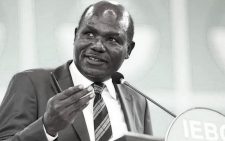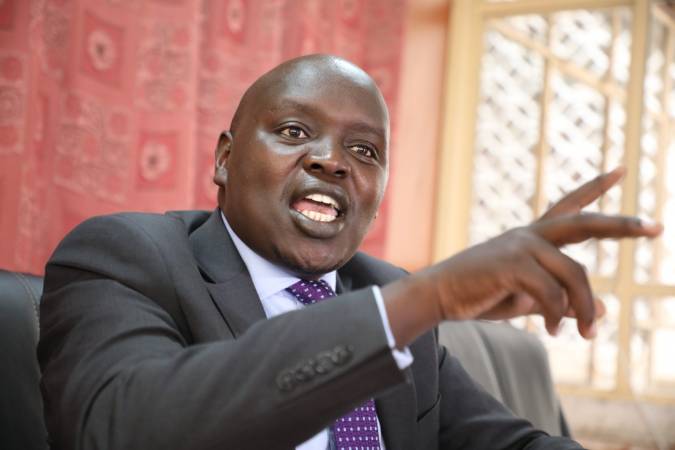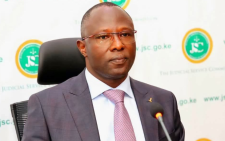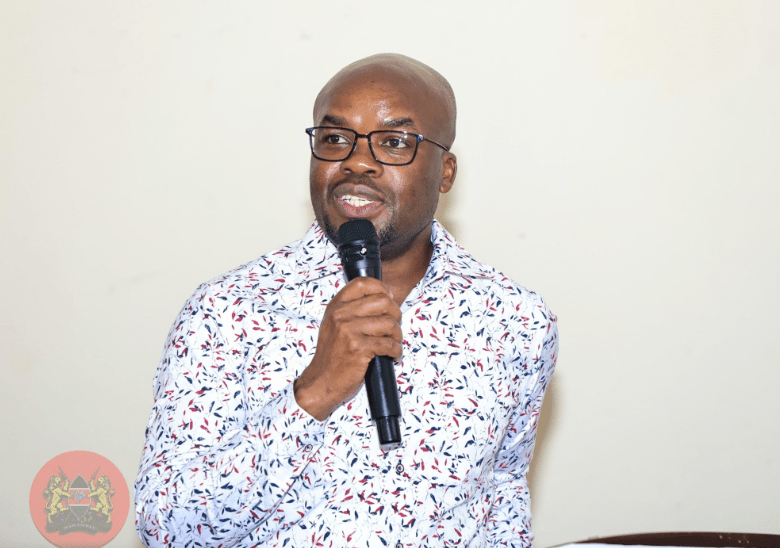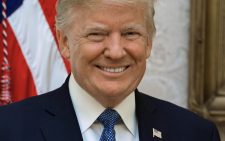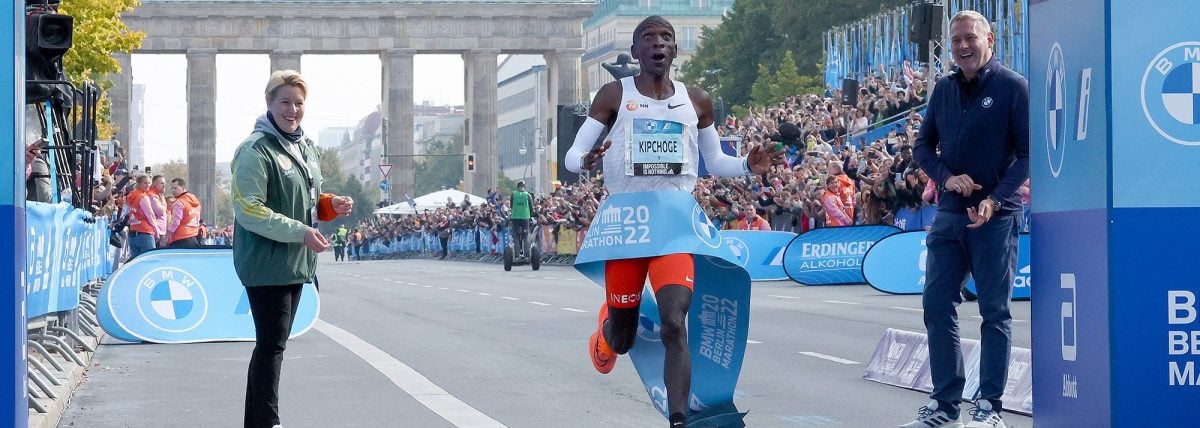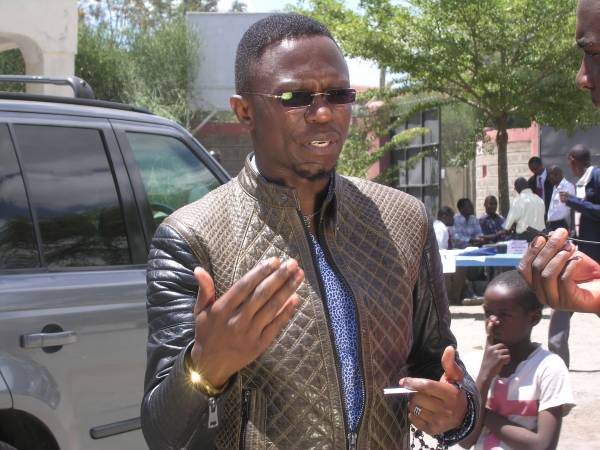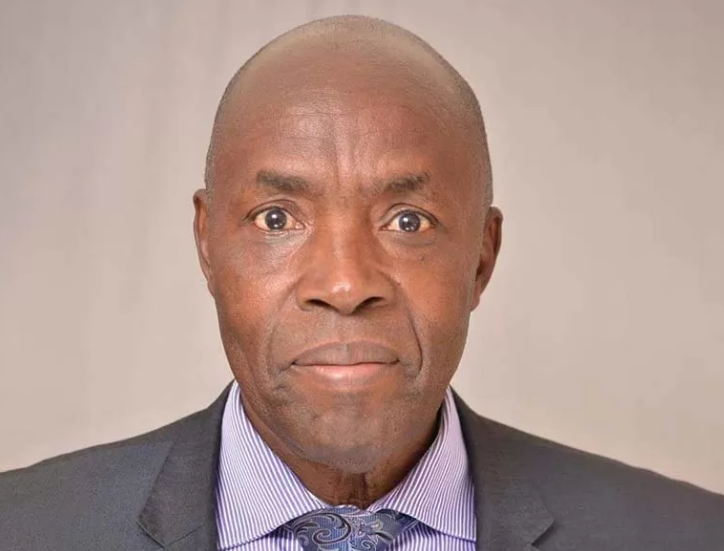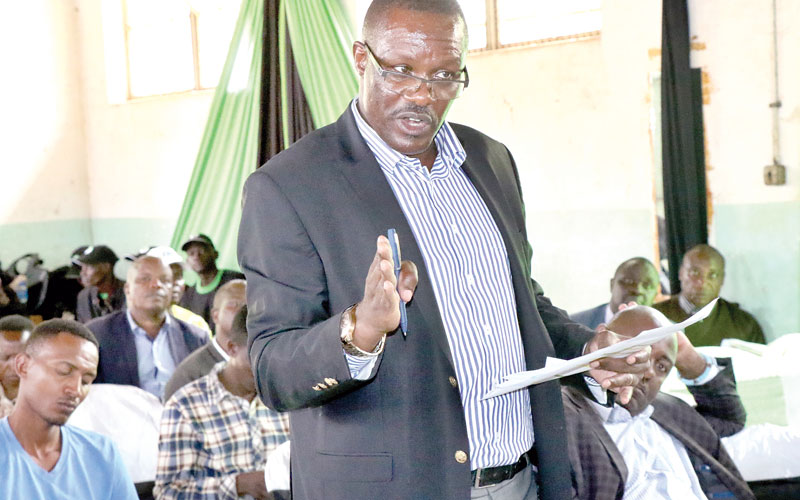Chebukati in the crosshairs ahead of Tuesday polls
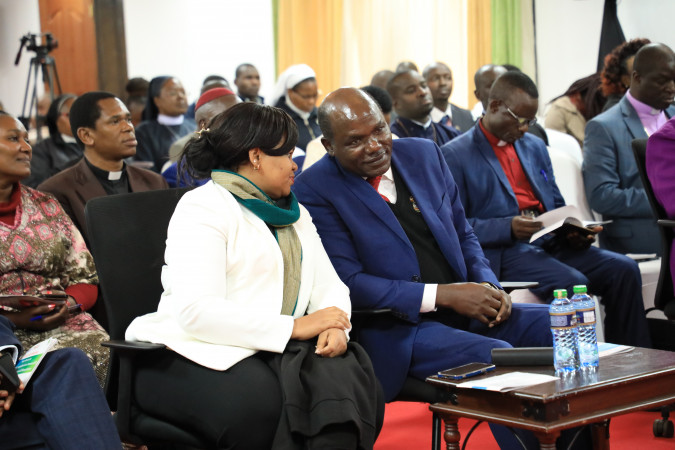
With the race between the two presidential front runners predicted as tight, focus has now shifted to election chief Wafula Chebukati and the Independent Electoral and Boundaries Commission (IEBC) he chairs.
Political parties, activists and voters have been asking questions, including whether Chebukati has what it takes to deliver a credible election or whether the ghosts of 2017 could return to haunt him and his team. Chebukati, who went through a baptism of fire in 2017 when the Supreme Court nullified that year’s election, has another opportunity to redeem his image. This could be his last chance given that his six-year tenure at IEBC is expected to end early next year.
Judging from his recent modus operandi, Chebukati appears to put his act together and has been treading carefully as the country inches towards Tuesday’s election. Chebukati, who assumed office after his predecessor, Isaack Hassan, was hounded out after the 2013 elections, finds himself in a difficult position.
First, he has to redeem his image after the 2017 debacle and second, he has risked a great deal to build a legacy as the first electoral boss to go fully digital.
Yesterday, he sent a strong signal, saying he was confident that his team would ensure a credible poll and that election results declared at polling stations will be deemed final. He even said he was willing to allow parallel tallying, a break from the past. However, not everyone believes it will be smooth sailing for the man who has often played his cards close to his chest.
“He seems to have more problems in his hands this time,” says Prof Macharia Kunene, a political analyst.
“The way he handled disputes from party primaries has exposed him as a man of double standards, where he cleared certain candidates while locking out some.”
Prof Macharia believes that though Chebukati has consistently assured Kenyans of IEBC’s commitment to deliver a credible, fair and free election, his relationship with other State agencies has been wanting, and could have a significant effect on the outcome of the results, as well as their acceptability across the board.
“The issue of the Venezuelans has left egg on his face and will not just die like that. But he needs to learn from that mistake and correct his relationship with other Government agencies before it is too late,” Macharia told People Daily.
Despite the criticism, one thing has to be said about the 61-year-old lawyer: This time around, he has changed his strategy.
The Supreme Court ruling of 2017 has influenced a big part of that change. The judges of the top court nullified the presidential vote, ruling that the commission committed acts of irregularities and illegalities that compromised its ability to deliver a credible election.
One thing
It was significant, however, that though the judges faulted the process, they did not fault the outcome in which Uhuru Kenyatta was declared winner over Raila Odinga.
After the nullification of the vote on September 1, Chebukati wrote a terse letter to the then Commission Secretary, Ezra Chiloba, detailing irregularities in the bungled elections.
In the leaked memo to Chiloba, Chebukati raised 12 concerns, mainly violations of electoral procedures in results transmission and in the acquisition of satellite phones worth Sh848 million for results transmission. The phones never worked. Chebukati had demanded to know what went wrong with the Kenya Integrated Election Management System results transmission system and why 10,366 out of the 40,883 polling stations sent text results without accompanying forms 34A. The affected areas accounted for about 4.6 million votes. This is the second circumstance that has informed Chebukati’s change of tack since the beginning of the year.
“The Chebukati of 2022 has been more engaging and interactive with other electoral players and strived to clarify all the grey areas,” said Mulle Musau, the national coordinator of the Election Observation Group.
Besides moving to seal some of the loopholes highlighted by the Supreme Court, Chebukati has held more than three meetings with all presidential candidates to iron out concerns each had raised.
This, according to Mulle, has painted a different picture of Chebukati, who in 2017 had adopted the “see no evil, hear no evil” attitude. To deliver an election that meets the high threshold set by the Supreme Court, Chebukati and IEBC have been implementing far-reaching changes, albeit with strong resistance from the political class. “Chebukati must address the flaws pointed out by the court, which warned that it would nullify the next poll if it does not meet the threshold,” said lawyer Fred Ojiambo, who featured prominently in past presidential election petitions.
For instance, in an attempt to address some of the questions recently raised by Azimio, Chebukati, in an advert published in some newspapers yesterday, ruled that results announced at polling stations and transmitted in the form of images instead of figures, would remain final.
His assurance ruled out fears of manipulation of results sent from the stations to the constituency and national tallying centres. “In accordance with Article 86 of the Constitution, the results are those announced by the presiding officer at the polling station. With respect to the presidential election, those results are captured in form 34A,” he said.
Election materials
On the controversial Forms 34A that were at the centre of the disputed 2017 presidential election, IEBC now says the forms are foolproof and cannot be manipulated. “There can be no discrepancy between the results recorded in Form 34A at the polling station and those transmitted electronically or even those received by the returning officer because it is essentially the same form,” he said.
Unlike in 2017 when he was accused of failing to gazette all polling stations, Chebukati has gazetted all this time round and promised to ensure that records of election materials supplied to the stations are easily accessible and verifiable.
Political pundits now argue that Chebukati has a solemn constitutional duty to shepherd the commission to undertake its mandate based on values of good governance and constitutionality and with the various court rulings as guiding lights.
“It behoves him to work with every commissioner. On the issue of some commissioners not being aware of the goings on, it speaks of their individual inclinations, or Chebukati’s style of leadership, or public speculation,” said Javas Bigambo, a political analyst.
Chebukati has only allowed three voices to speak on behalf of the commission: Hmself, CEO Marjan Hussein Marjan and Justus Nyang’aya.
